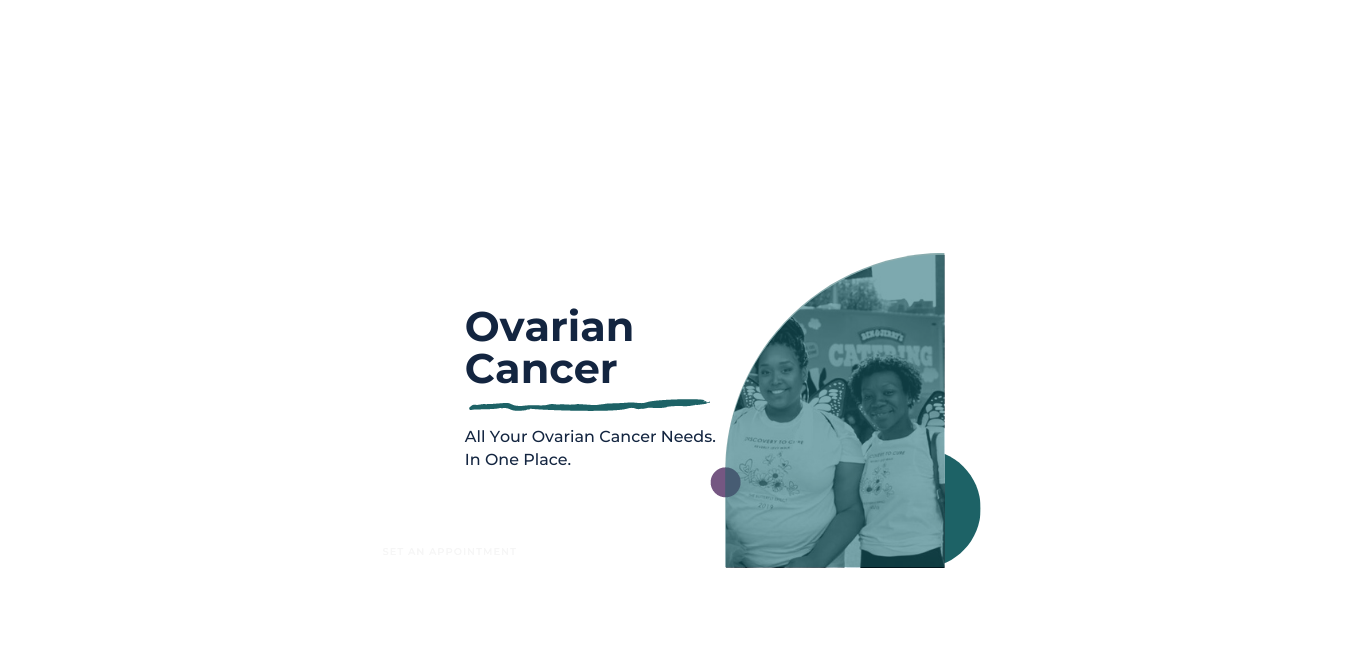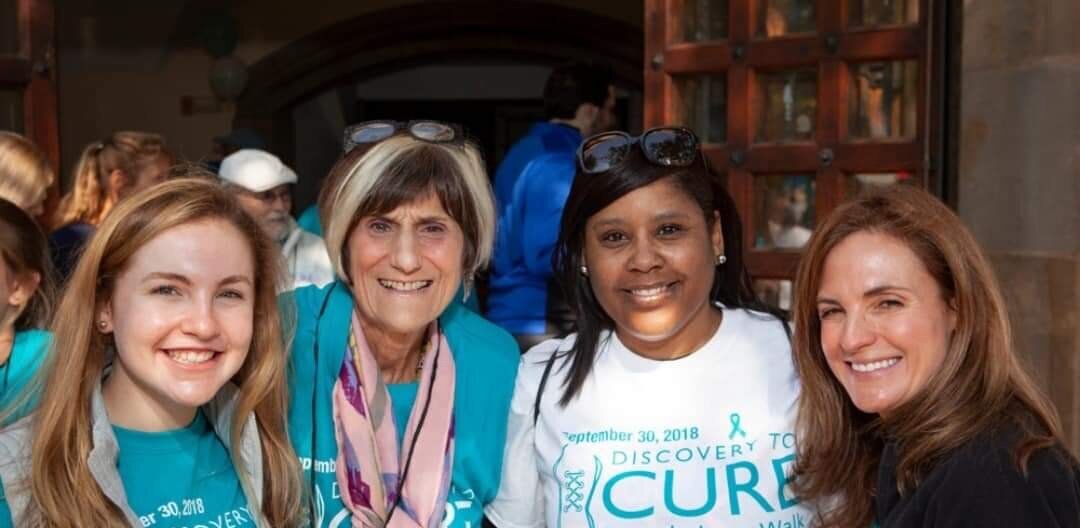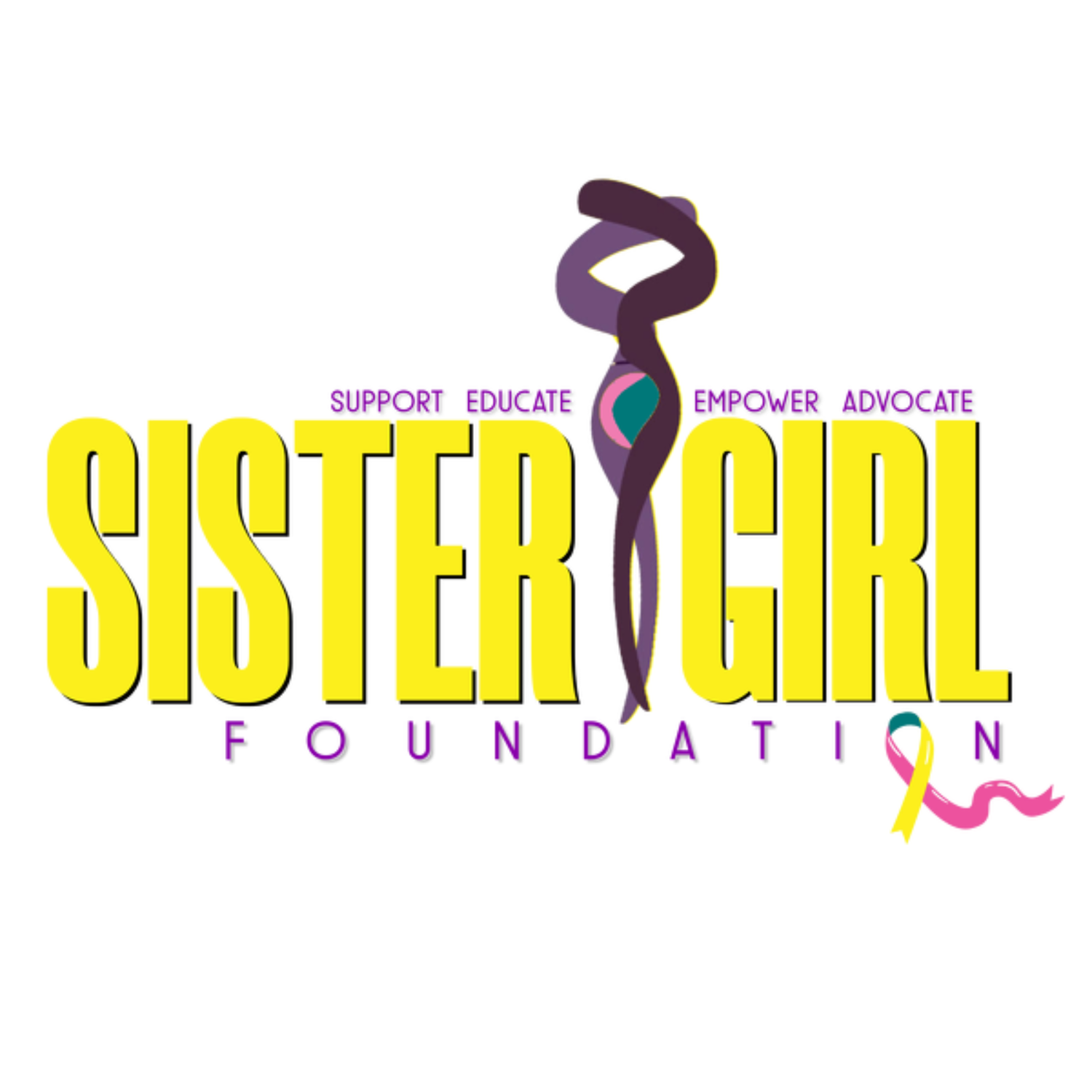

Ovarian Cancer rarely shows symptoms prior to diagnosis.
Ovarian Cancer General Information
What is it?
Ovarian cancer is a group of diseases that originates in the ovaries, or in the related areas of the fallopian tubes and the peritoneum. Women have two ovaries that are located in the pelvis, one on each side of the uterus. The ovaries make female hormones and produce eggs. Women have two fallopian tubes that are a pair of long, slender tubes on each side of the uterus. Eggs pass from the ovaries through the fallopian tubes to the uterus. The peritoneum is the tissue lining that covers organs in the abdomen.
When ovarian cancer is found in its early stages, treatment works best. Ovarian cancer often causes signs and symptoms, so it is important to pay attention to your body and know what is normal for you. Symptoms may be caused by something other than cancer, but the only way to know is to see your doctor, nurse, or other health care professional.
Some mutations (changes in genes) can raise your risk for ovarian cancer. Mutations in the breast cancer susceptibility genes 1 and 2 (BRCA1 and BRCA2), and those associated with Lynch syndrome, raise ovarian cancer risk.
Ovarian cancers come in a variety of different tumor types. The most common tumor type is high-grade serous carcinoma, occurring in about 70% of ovarian cancer cases.
What are the Symptoms?
The most common symptoms are:
Ovarian cancer may cause the following signs and symptoms:
Vaginal bleeding (particularly if you are past menopause), or discharge from your vagina that is not normal for you.
Pain or pressure in the pelvic area.
Abdominal or back pain.
Bloating.
Feeling full too quickly, or difficulty eating.
A change in your bathroom habits, such as more frequent or urgent need to urinate and/or constipation.
They may be caused by something other than cancer, but the only way to know is to see a doctor.
What do I do now?
The Pap test does not check for ovarian cancer. The only cancer the Pap test screens for is cervical cancer. Since there is no simple and reliable way to screen for any gynecologic cancer except for cervical cancer, it is especially important to recognize warning signs, and learn what you can do to reduce your risk.
Here is what you can do—
Pay attention to your body and know what is normal for you.
If you notice any changes in your body that are not normal for you and could be a sign of ovarian cancer, talk to your doctor about them.
Ask questions (no question is a silly one)
Keep a journal of all of your symptoms and concerns
Advocate for yourself and be a part of your care plan
Diagnosis
There is no simple and reliable way to screen for ovarian cancer in women who do not have any signs or symptoms. Ask your doctor if you should have a diagnostic test, like a rectovaginal pelvic exam, a transvaginal ultrasound, or a CA-125 blood test if you have any unexplained signs or symptoms of ovarian cancer. These tests sometimes help find or rule out ovarian cancer. Also ask your doctor about other testing that may be available to detect ovarian cancer in women of color.
Treatment
Treatment for ovarian cancer usually involves a combination of surgery and chemotherapy.
Surgery: Doctors remove cancer tissue in an operation.
Chemotherapy: Using special medicines to shrink or kill the cancer. The drugs can be pills you take, or medicines given in your veins, or sometimes both.
Different treatments may be provided by different doctors on your medical team.
Gynecologic oncologists are doctors who have been trained to treat cancers of a woman’s reproductive system. They perform surgery and give chemotherapy (medicine).
Surgeons are doctors who perform operations.
Medical oncologists are doctors who treat cancer with medicine (chemotherapy).
List of Sister Girl Ovarian Cancer Resources
List of Physicians/Specialists in Your Area
Take a look at some of our recommended physicians and specialists in your area. If your area is not listed, we will personally find some for you!
Sister Girl Financial Assistance
Paying for quality healthcare isn’t easy. Relieve some stress and check out our list of grants, fundraisers, programs to help offset some of your out of pocket expenses and free services being offered in and around your area.
Educational Material
Utilize our print and digital material to learn how ovarian cancer is diagnosed and treated, medical terminology to help you better advocate for your health, and how to manage your ovarian cancer.
Organization to Organization
Interested in partnering with the Sister Girl Foundation or want healthcare advocacy training for your staff? We provide workshops and speaking opportunities. Click below to learn more.
Mental Health & Holistic Medicine
We understand that battling with ovarian cancer isn’t easy and can take a toll on your mental health. Check out our mental health resources and learn alternative ways to manage your ovarian cancer.
in 2020, about 21,750 women will receive a new diagnosis of ovarian cancer.
All of Your Ovarian Cancer Needs. In One Place.
Sister Girl Ovarian Cancer Advocacy & Support
The Sister Girl Foundation offers the following advocacy & support to all women needing a helping hand during their journey with ovarian cancer:
A Sister Girl Support Group
Local in your community or a virtual support group there whenever you need them
Treatment buddy
Your Sister Girl Support Group can accompany you to one or all (your preference) of your doctor visits, treatment session, surgeries & more for added support and motivation
Healthcare Advocacy Support
Show up well equipped. Let us help you get the healthcare you deserve
Sister Girl Meet-Ups, Events and Workshops
Surround yourself with a supportive community. No more suffering in silence.
Financial Support
Locating local resources in your community to provide financial support for:
Co-pay expenses
Specialist visits
Surgical expenses
Prescriptions
Travel expenses
Schedule a Sister Girl Ovarian Cancer Advocacy Consultation
Schedule an advocacy consultation with us to find out more about how the Sister Girls can help you advocate more effectively for your healthcare. Consultations usually take roughly between 45 minutes to 1 hour.

